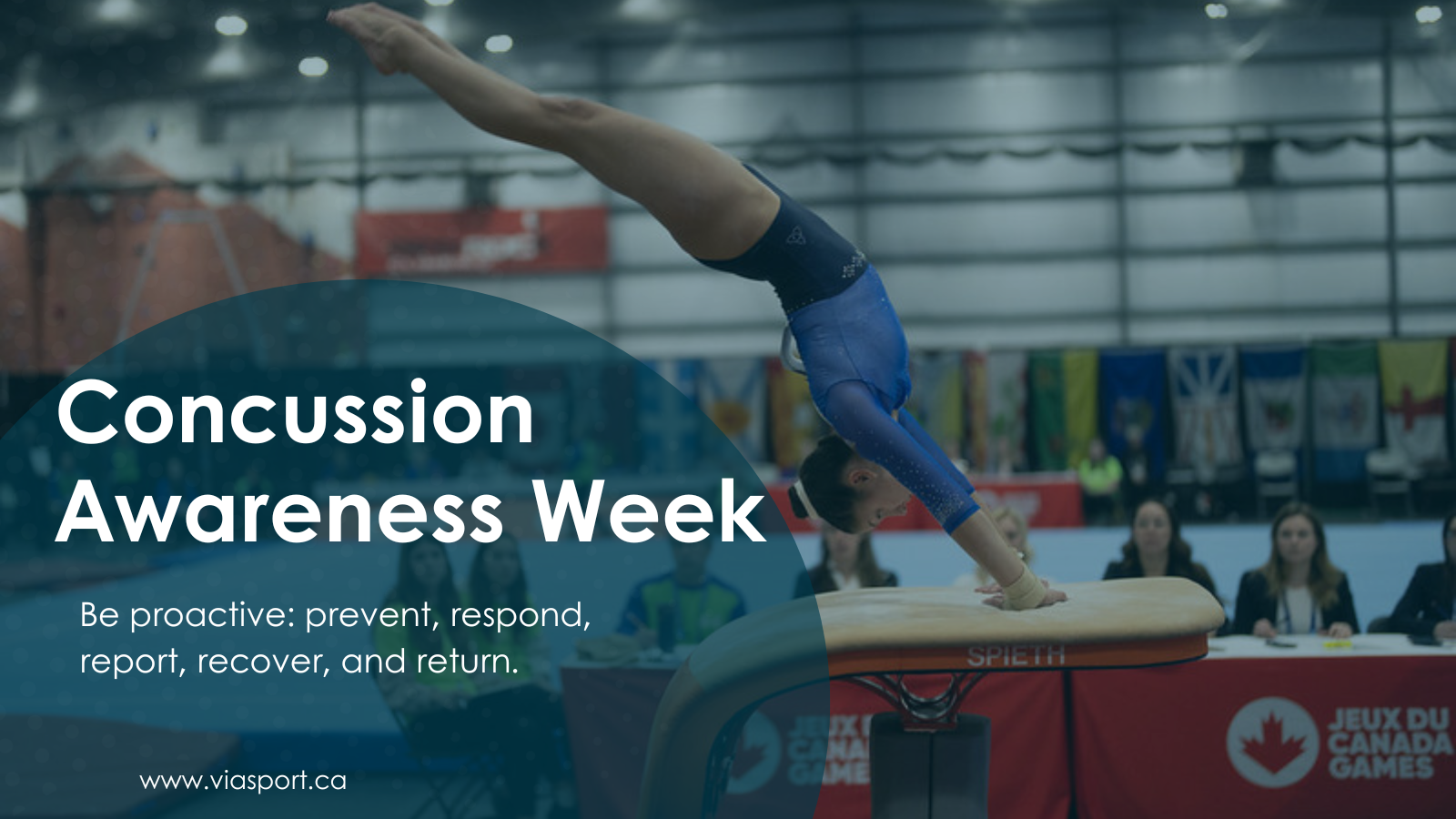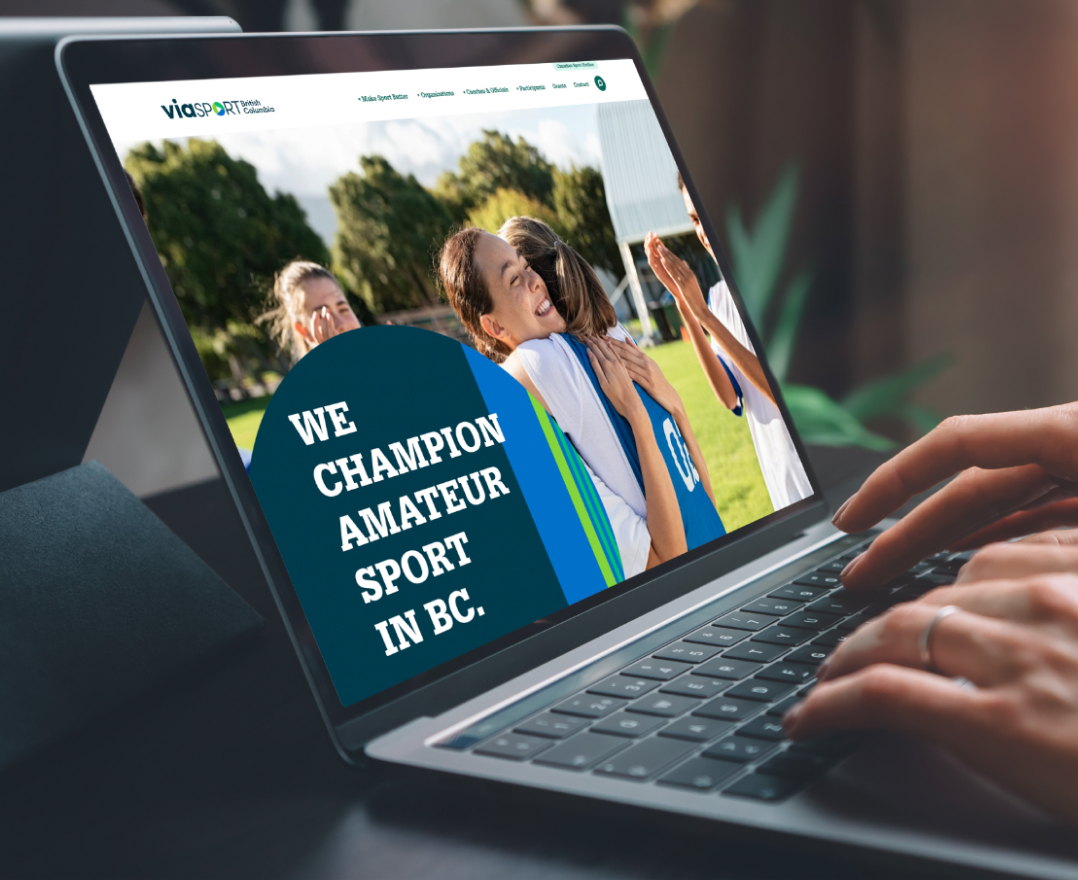Concussion Awareness Week 2023
Sep 19, 2023

Concussion Awareness Week runs from September 24 to September 30, 2023. For us at viaSport, it is a week to raise awareness within the sport community and provide evidence-based knowledge on preventing, assessing, and treating a concussion.
A concussion is the most common form of head injury, and it can happen to anyone who engages in sport regularly. Having the proper knowledge of concussion prevention and management is incredibly important for children, youth, and adults who are actively participating in sport.
According to research conducted by Public Health Ontario, it is important for youth in sport to have education and hands-on training on proper equipment fitting, tackling technique and strategies for reducing player-to-player contact to prevent concussions. However, if a concussion has been suspected, follow the proper resources and steps regarding concussion management; otherwise, a concussion can have adverse long-term effects on the individual without the appropriate care and treatment.
Dr Andre Lui, Cycling Canada’s National Team Physician, explained the proper steps someone should take if a concussion has been suspected; “If someone suspects they have a concussion, they should seek medical advice from a general practitioner (GP) or sport physician as soon as possible. If symptoms are more worrisome, like severe headaches, vomiting, or altered level of consciousness, go to the ER. ”
Up to 50% of sport-related concussions go unreported due to pressure in the workplace, on the field, or at home, but this serious injury requires support and care. “In most cases, concussions can improve on their own in one to two weeks, but it is important to seek medical advice where a professional can guide an athlete on how to return to the sport properly,” Dr. Lui shares. “The athlete should not return to the activity the same day, and relative rest is recommended, where they can do day-to-day activities, but should minimize screen time and cognitive activity.”
Athletes, guardians, and coaches should be aware of how to recognize and report concussion symptoms. The following resources can help you be more proactive with concussion management through prevention, responding, reporting, and recovery, so athletes can return to their sport:
Concussion Management Resources & Toolkits
Engaging in sport regularly can increase your risk of injury. Active & Safe provides information on common injuries, risk factors, and injury prevention for any activity you choose.
The Concussion Awareness Training Tool (CATT) is a series of online modules curated for athletes, coaches, guardians, youth, and more to address concussion recognition, diagnosis, treatment, and management.
Receiving the proper treatment when dealing with a concussion is essential. The Sport MED BC Practitioner Directory helps you find a qualified practitioner near you to assess and treat your injury correctly.
The Vancouver Coastal Health has created a personalized teen & adult concussion road map that guides individuals on managing their specific concussion symptoms. However, this guide should not be used to self-diagnose or replace medical advice.
BC Injury Research & Prevention Unit has developed a Concussion Awareness Week Campaign Toolkit, which includes information, tools, and resources for organizations and communicated departments to improve concussion education and awareness.
The Sport Information Resource Centre has partnered with Bell Media this Concussion Awareness Week to share critical messages through recommended resources and social media content for organizations to share and promote Concussion Awareness Week through their #WeAreHeadstrong campaign.
